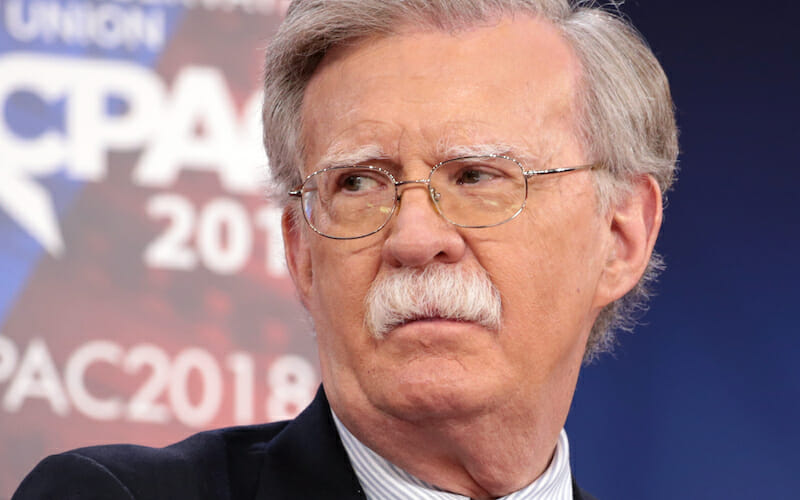
How Prepared is Team Trump to Make Progress on the Korean Nuclear Crisis?
In what has unfortunately become standard for the mainstream media, many political pundits and news sites is the refusal to acknowledge any potentially positive prospects from the Trump-Kim Summit. They allege that the summit and future negotiations will not provide concrete results and suggest that the Trump foreign policy team is in a state of disarray. Politico’s headline sums it up best: “‘Nobody in the bullpen’: White House approaches North Korea talks without envoy.”
Some went so far as to state that merely meeting with Kim Jong-Un is a mistake in that it provides legitimacy to the North Korean dictatorship. Considering that the Summit was an unprecedented meeting of an American president reaching out to the North Korean antagonist, this event truly legitimized Trump far more than it legitimized Kim. Trump’s critics found exceedingly little to fault and had to resort to claiming that trying to reach peace with a regime that actively is threatening international peace and security is somehow worse than doing nothing.
Having a meeting to resolve a crisis that threatens the lives of millions of civilians does not equate to pursuing full-fledged diplomatic relations with North Korea and embracing its policies. In fact, President Trump has condemned North Korea for its treatment of its own people and frequently has referenced the horrifying imprisonment and torture of American college student Otto Warmbier.
Many of these same critics praised the Obama administration for reaching diplomatic agreements with two other oppressive regimes, Iran and Cuba. Although their actions may pale in comparison to those of North Korea, China and Russia certainly possess spotty human rights records yet still participate in major dealings with the United States. The entire concept behind diplomacy is to engage with all parties in a conflict to reach a peaceful resolution. Ignoring the regime, as has been done in the past, will not provide a solution to this prolonged crisis. President Ronald Reagan deemed the former Soviet Union an evil empire, yet met with Mikhail Gorbachev several times.
The president and his Cabinet have made it clear time and again that they will remain positive and hopeful when it comes to denuclearizing on the Korean Peninsula but will still maintain a healthy dose of skepticism given the Pyongyang regime’s poor track record of fulfilling past pledges. Both The Atlantic and Reuters along with others portrayed National Security Advisor John Bolton as being “silent” or “pushed to the backseat” in his level of involvement in the meeting between Kim and Trump, given his distrust of the North Koreans and advocacy for a tougher U.S. strategy. Bolton is simply fulfilling his role, advising the president. On March 22 in an interview with Fox News’ Martha MacCallum, Bolton expounded on the duties that come with the job of national security adviser. He explained that a national security adviser needs to provide the president with all options available in addressing every national security situation, while also providing the advantages and disadvantages to each possible strategy. After the president chooses which strategy he sees best, the national security adviser must oversee the implementation of the strategy.
Bolton was present at the Summit. It is not fair to assume that he was not able to voice his concerns during the private negotiations between the American and North Korean delegations. President Trump has faced criticism over surrounding himself with advisors and Cabinet members who share varied opinions. However, having a variety of opinions within an administration is a major benefit. In the previous administration, former Secretaries of Defense Robert Gates and Leon Panetta both expressed that they felt only a small group of political advisors were taken seriously whereas other advisors were pushed to the side for having opinions that differed from President Obama’s. If negotiations seeking an agreement to denuclearize the Korean Peninsula prove unsuccessful, Bolton will be instrumental in advising the president to develop a more aggressive strategy. This is especially important, given that the The Wall Street Journal is reporting that North Korea is upgrading a nuclear facility, even after destroying other test sites after the Summit.
The outcome of negotiations to completely and verifiably denuclearize the Korean Peninsula remains unclear and the process could take many years, especially considering that it took South Africa years to dismantle its lesser nuclear program, all while needing to abide by safeguards of the international community’s nuclear non-proliferation regime. President Trump indisputably made some progress by meeting with Kim Jong-Un and signing a basic communique, with the intention to reach a more concrete and detailed agreement in the future. If North Korea decides to go back on its word, President Trump will be well prepared to develop a more aggressive strategy with advisors such as John Bolton at his side. However, what is conclusive is that the media’s desire for negotiations to fail solely because they disagree with other policies of President Trump is indicative of a new low in American politics.

